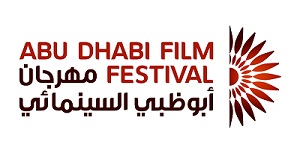My Mind Words Paper [Search results for film]
Call for Papers - Evolving African Film Cultures: Local and Global Experiences (Africa Media Centre, University of Westminister - London)
Mosaic Women’s Film Project v.3 Grant for Women of Diverse Cultural Background (Canada)

Call for Participants: Nisimazine Abu Dhabi Film Journalism Workshop (Arabic countries)

iREPRESENT International Documentary Film Forum 2011 Workshop on Story Telling and Scripting (Nigeria)
Call for Papers: Woman and Film in Africa Conference (University of Westminister, UK)
Deadline Extended: Abu Dhabi Film Commission's $100,000 Sasha Grant Screenwriting Competition (Middle East/ North Africa)
Abu Dhabi Film Commission's $100,000 Shasha Grant Screenwriting Competition (Middle East/ North Africa)
The National Film & Video Foundation Screenwriters Training Programme (South Africa)
Open to Independent Arab Screenwriters: The 8th Round of Rawi Screenwriters' Lab (MENA/ Gulf)
Scholarships Available - New York Film Academy: Live in Lagos
Zero Tolerance for Violence Against Women: Film Script Competition (Rwanda)
Call for Submissions: 7th Mizna Twin Cities Arab Film Festival
Black Science Fiction Script Movie Project 2012 (USA)
Get Your Script Produced: The London Screenwriters' Festival Competition (open to writers from overseas)
HOMEVIDA Short Film Script Competition (Nigeria)
Nigerian Film Corporation 2011/ 2012 Film Essay Competition
Algerian Karim Bensalah Selected for Sundance Directors Lab

Introduction to Screenwriting Workshop (Auteur Film School, South Africa)
Film Synopses Sought from Women: Guru Productions Film Competition (North Africa)

Panel Discussion at the Queer Women of Color Film Festival - To Have and to Hold: LGBTQ People of Color and Same-Sex Marriage (SF)